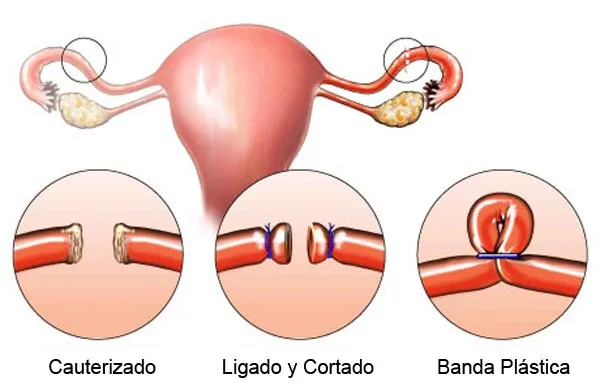Question:
When going to confession, a priest told me that contraception is a grave sin. At the time I did not dare to ask him if it was always a mortal sin, or if in some cases it was only a venial sin. Could you answer this?
Answer:
I must answer that the Magisterium of the Church – since the Encyclical Casti connubii of Pius XI, through the Second Vatican Council and Paul VI, to the various documents of John Paul II – has uniformly taught that contraception is always a matter of grave sin.
In order to understand this, we should take into account that grave matter of sin refers to those fundamental values of the person that are protected by the Ten Commandments (precisely because of their importance for the perfection of the human person, which is to say, for the person to reach the ends that perfect them).
Therefore, the Magisterium of the Church teaches that contraception is a matter of grave sin by affirming that: 1) important values are at stake in the conjugal act and, 2) contraception seriously endangers these values.
In this sense, Gaudium et spes presents the conjugal act as the privileged and authentic proper expression of conjugal love and, in turn, states that conjugal love is constitutionally ordered to the transmission of life, or procreation [2]. Love and life are, consequently, the central values at stake in conjugal love, and these values are evidently of the highest importance.
Paul VI expresses the same substantial point by emphasizing the ‘meanings’ of the conjugal act, as well as by founding the ethical obligations on the principle of the inseparability of the two meanings which the act contains in its structure, that is, the unitive and the procreative meanings: “This particular doctrine…is based on the inseparable connection…between the unitive significance and the procreative significance which are both inherent to the marriage act. The reason is that the fundamental nature of the marriage act, while uniting husband and wife in the closest intimacy, also renders them capable of generating new life—and this as a result of laws written into the actual nature of man and of woman. And if each of these essential qualities, the unitive and the procreative, is preserved, the use of marriage fully retains its sense of true mutual love and its ordination to the supreme responsibility of parenthood to which man is called” [3]. The same Pope also pointed to totality and fecundity among the essential and indispensable qualities that love must have in order to be authentically conjugal. In fact, totality does not permit exclusions or reservations of any kind; and fecundity is an orientation toward bringing new life into being [4].
Along these lines, John Paul II, in Familiaris Consortio, goes so far as to affirm that “total physical self-giving would be a lie if it were not the sign and fruit of a total personal self-giving, in which the whole person, including the temporal dimension, is present: if the person were to withhold something or reserve the possibility of deciding otherwise in the future, by this very fact he or she would not be giving totally” [5].
With these expressions in mind, John Paul II himself, in touching on the subject of contraception, then enumerates all the values that are destroyed by contraception: “When couples, by means of recourse to contraception, separate these two meanings that God the Creator has inscribed in the being of man and woman and in the dynamism of their sexual communion, they act as ‘arbiters’ of the divine plan and they ‘manipulate’ and degrade human sexuality-and with it themselves and their married partner-by altering its value of ‘total’ self-giving. Thus the innate language that expresses the total reciprocal self-giving of husband and wife is overlaid, through contraception, by an objectively contradictory language, namely, that of not giving oneself totally to the other. This leads not only to a positive refusal to be open to life but also to a falsification of the inner truth of conjugal love, which is called upon to give itself in personal totality” [6].
The values that contraception objectively compromises are clearly enumerated:
- On the part of the spouses, the non-acceptance of their mission as ‘ministers’ and ‘collaborators’ of God in the transmission of life.
- The pretension of becoming ‘arbiters’ of the divine plan.
- The debasement of human sexuality and, therefore, of one’s own person and that of one’s spouse.
- The falsification of sexual language until the point of making it objectively contradictory.
- The elimination of all references to the value of ‘life.’
- The mortal wound (‘falsification of the inner truth’) of conjugal love itself.
The ‘no’ to life – says Lino Ciccone – that the use of a contraceptive shouts with its very denomination, is presented as well, and above all, as a ‘no to God.’ He recalls the way Paul VI warned in Humanae vitae, “an act of mutual love which impairs the capacity to transmit life which God the Creator, through specific laws, has built into it, frustrates His design which constitutes the norm of marriage, and contradicts the will of the Author of life. Hence to use this divine gift while depriving it, even if only partially, of its meaning and purpose, is equally repugnant to the nature of man and of woman, and is consequently in opposition to the plan of God and His holy will” [7].
John Paul II does not hesitate to say that the dignity of the person is radically endangered in contraceptive behavior because, in the person, whose ‘fundamental constitution’ is self-mastery, the model proper to the relationship with things is applied, which is a relationship of mastery, thus depriving man “of the subjectivity that is proper to him” and making him “an object of manipulation” [8].
Therefore, the principle of the Magisterium applies here, which states: “Now according to Christian tradition and the Church’s teaching, and as right reason also recognizes, the moral order of sexuality involves such high values of human life that every direct violation of this order is objectively serious” [9].
That contraception constitutes a direct violation of the moral order of sexuality is an unequivocal and constant teaching of the Magisterium, given that it qualifies it as “intrinsically evil” [10].
Further confirmation of the objective moral gravity of contraception can be found by paying attention to some of the characteristics that this behavior has assumed in our time.
Contraception, as it has spread, has given rise to what John Paul II calls a “conspiracy against life” [11]. A conspiracy, the Pope continues, “involving even international Institutions, engaged in encouraging and carrying out actual campaigns to make contraception, sterilization and abortion widely available” [12].
The spread of contraception among the masses was the first step on the road to death. A vast “contraceptive mentality” has quickly derived from it, i.e., a general attitude of rejecting any unwanted child, thus opening the way to a tremendous social acceptance of sterilization and abortion. This, in turn, constitutes the premise for the social acceptance of euthanasia and its legal legitimization.
Contraception in our contemporary world has played, and continues to play, a very significant role in the development of the devastating “culture of death;” there are tens of millions of victims every year. A culture which, moreover, debases human sexuality and distorts love even in its most sublime form, such as maternal love, when it confers on the mother the absurd right to kill the child she carries in her womb.
Spouses who choose contraception, whether they know it or not, contribute to consolidating and strengthening this culture at its source. The negative judgment of the Magisterium is understood in this way.
Fr. Miguel A. Fuentes, IVE
Bibliography for further reading:
Lino Ciccone, Is Contraception Sinful?
https://www.catholicnewsagency.com/resource/55268/is-contraception-sinful-by-fr-lino-ciccone-cm
Lino Ciccone, “L’ENCICLICA « HUMANAE VITAE ». ANALISI E COMMENTO.” Divus Thomas, vol. 72, no. 1, 1969, pp. 3–58. (Italian)
Pontifical Council for the Family, Vademecum for Confessors Concerning Some Aspects of the Morality of Conjugal Life, 1997.
Fuentes, Miguel, La ‘Humanae vitae’ de Pablo VI: esencia de un documento profético, Diálogo 21 (1998), 101-117. (Spanish)
Citation
[1] Cf. Catechism of the Catholic Church, nn. 1858 and 2072.
[2] Cf. Gaudium et spes, nn. 49 and 50.
[3] Humanae vitae, n. 12.
[4] Cf. Ibid., n. 9.
[5] Familiaris consortio, n. 11.
[6] Ibid., n. 32.
[7] Humanae vitae, n. 13.
[8] John Paul II, General Audience, August 22, 1984, n. 1.
[9] Congregation for the Doctrine of the Faith, Persona Humana, n. 10.
[10] Catechism of the Catholic Church, n. 2370.
[11] Evangelium Vitae, n. 12, 17.
[12] Ibid., 17.
Original post: Here
Other Post: What Importance Does Virginity Have?














